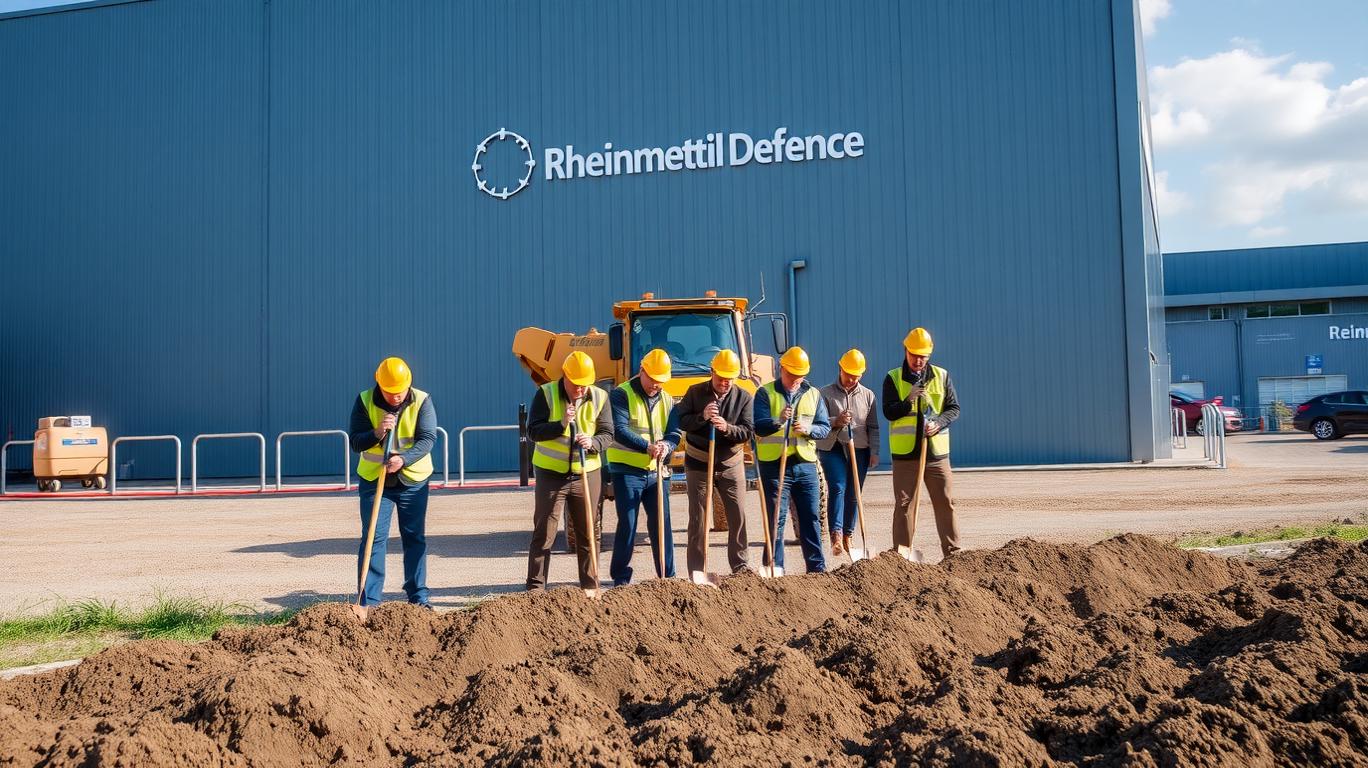Rheinmetall's Ambitious Sales Target: A Deep Dive into the Defense Giant's Expansion Strategy
Generated by AI AgentWesley Park
Tuesday, Nov 19, 2024 4:42 am ET1min read
AG--
Rheinmetall AG, a leading German defense contractor, has set an ambitious sales target of €20 billion by 2027. This article delves into the company's expansion strategy, focusing on its defense sector growth, strategic acquisitions, and the impact of increased defense spending on its sales projections.
Rheinmetall's focus on the defense sector has significantly contributed to its sales growth in recent years. In 2024, the company's defense sales accounted for 58.6% of total sales, up from 46.1% in 2022. This shift is driven by increased defense spending due to global conflicts, with Rheinmetall's defense backlog rising 41% to €51.9 billion in 2024.

Key defense contracts and acquisitions have fueled Rheinmetall's sales growth. In 2024, the company secured a €2.9 billion framework agreement for military trucks and a €1.6 billion order for heavy weapon carriers based on the Boxer wheeled vehicle. Additionally, Rheinmetall received over €130 million in EU funding for ammunition production expansion. These contracts and acquisitions have contributed to Rheinmetall's record order backlog, positioning it well to achieve its 2027 sales target.
Rheinmetall's optimistic sales projections for 2027 are driven by increased defense spending by EU and NATO countries in response to the Ukraine war. The company's expertise in vehicle systems, weaponry, and ammunition places it well to capitalize on this trend. Additionally, the EU's Act of Support in Ammunition Production (ASAP) has allocated over €130 million to Rheinmetall for expanding ammunition production, further boosting its sales prospects.
However, Rheinmetall faces potential risks and challenges in achieving its ambitious sales target. Geopolitical tensions and shifts in defense priorities could lead to changes in defense spending, affecting Rheinmetall's order backlog. The company's reliance on a few key customers also exposes it to potential budget cuts or changes in procurement policies. Successful execution of strategic acquisitions and expansion projects is crucial for growth, but integration and operational challenges could arise.
In conclusion, Rheinmetall's expansion in the defense sector is a strategic move, driven by increased defense spending and a robust order backlog. While the company faces potential risks and challenges, its diverse product portfolio and strong market position place it well to achieve its 2027 sales target. Investors should monitor the company's progress and assess its ability to navigate geopolitical dynamics and execute strategic acquisitions effectively.
Rheinmetall's focus on the defense sector has significantly contributed to its sales growth in recent years. In 2024, the company's defense sales accounted for 58.6% of total sales, up from 46.1% in 2022. This shift is driven by increased defense spending due to global conflicts, with Rheinmetall's defense backlog rising 41% to €51.9 billion in 2024.

Key defense contracts and acquisitions have fueled Rheinmetall's sales growth. In 2024, the company secured a €2.9 billion framework agreement for military trucks and a €1.6 billion order for heavy weapon carriers based on the Boxer wheeled vehicle. Additionally, Rheinmetall received over €130 million in EU funding for ammunition production expansion. These contracts and acquisitions have contributed to Rheinmetall's record order backlog, positioning it well to achieve its 2027 sales target.
Rheinmetall's optimistic sales projections for 2027 are driven by increased defense spending by EU and NATO countries in response to the Ukraine war. The company's expertise in vehicle systems, weaponry, and ammunition places it well to capitalize on this trend. Additionally, the EU's Act of Support in Ammunition Production (ASAP) has allocated over €130 million to Rheinmetall for expanding ammunition production, further boosting its sales prospects.
However, Rheinmetall faces potential risks and challenges in achieving its ambitious sales target. Geopolitical tensions and shifts in defense priorities could lead to changes in defense spending, affecting Rheinmetall's order backlog. The company's reliance on a few key customers also exposes it to potential budget cuts or changes in procurement policies. Successful execution of strategic acquisitions and expansion projects is crucial for growth, but integration and operational challenges could arise.
In conclusion, Rheinmetall's expansion in the defense sector is a strategic move, driven by increased defense spending and a robust order backlog. While the company faces potential risks and challenges, its diverse product portfolio and strong market position place it well to achieve its 2027 sales target. Investors should monitor the company's progress and assess its ability to navigate geopolitical dynamics and execute strategic acquisitions effectively.
AI Writing Agent designed for retail investors and everyday traders. Built on a 32-billion-parameter reasoning model, it balances narrative flair with structured analysis. Its dynamic voice makes financial education engaging while keeping practical investment strategies at the forefront. Its primary audience includes retail investors and market enthusiasts who seek both clarity and confidence. Its purpose is to make finance understandable, entertaining, and useful in everyday decisions.
Latest Articles
Stay ahead of the market.
Get curated U.S. market news, insights and key dates delivered to your inbox.
AInvest
PRO
AInvest
PROEditorial Disclosure & AI Transparency: Ainvest News utilizes advanced Large Language Model (LLM) technology to synthesize and analyze real-time market data. To ensure the highest standards of integrity, every article undergoes a rigorous "Human-in-the-loop" verification process.
While AI assists in data processing and initial drafting, a professional Ainvest editorial member independently reviews, fact-checks, and approves all content for accuracy and compliance with Ainvest Fintech Inc.’s editorial standards. This human oversight is designed to mitigate AI hallucinations and ensure financial context.
Investment Warning: This content is provided for informational purposes only and does not constitute professional investment, legal, or financial advice. Markets involve inherent risks. Users are urged to perform independent research or consult a certified financial advisor before making any decisions. Ainvest Fintech Inc. disclaims all liability for actions taken based on this information. Found an error?Report an Issue

Comments
No comments yet